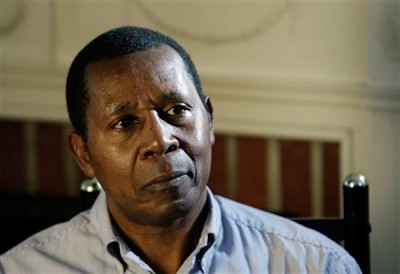The Derogation of Justice and Human Rights in Rwanda: Open Letter to Rwanda’s Chief Justice on the Case of Dr. Léopold Munyakazi

Re: Republic of Rwanda v. Leopold Munyakazi
Dear Chief Justice:
Professor Munyakazi was deported from the United States of America following a decision by the United States Court of Appeal in Richmond, Virginia. That tribunal has a legacy of racism and of discrimination against African people dating from colonial slavery days, the rebellion of the Southern Confederacy, and later, the Ku Klux Klan and Jim Crow resistance to human dignity and civil rights for African Americans.
From my standpoint as a legal observer to the proceedings conducted within the Fourth Circuit, the evidence connecting Professor Munyakazi appeared to be either shallow, and when not that, contrived.
Despite the paucity of evidence and the token due process, Leopold‘s application for relief was denied by a judiciary hypersensitive to the waves of hysteria permeating American national life against immigrants and refugees.
It was shameful for the U.S. Justice Department, albeit under token African-American executive leadership, to collaborate in an agenda for deportation to satisfy interests other than the interests of substantial justice.
The 2015 Constitution of the Republic of Rwanda is an impressive document containing a courageous and generous declaration to secure a sweeping variety of freedoms and protections for the inhabitants of your beautiful country. The question that I have, is whether they will fully and meaningfully apply to Professor Leopold Munyakazi. In America he has become known as a modest and humane gentleman gifted in his capacity to educate and inspire others.
Is there a provision for legal observers to contribute an amicus curiae brief upon his behalf, to assist the indigent Professor, now reduced to a penniless prisoner of the National Police and Prosecutor General, in making a case for his innocence and his mistaken, if not malicious, prosecution?
Reports are being received from several sources concerned for Leopold’s safety in custody. There are indications that he has already received a serious assault in the Brigaide prison and further, that he has been dministered medications designed to cloud his mentality and inhibit his capacity to defend himself at trial. Are you able to invoke your final superintendency over the lower courts to guarantee that Leopold receives a fair and public trial, presided over by a jurist independent of and indifferent to either fear of or favor to the powers that be?

